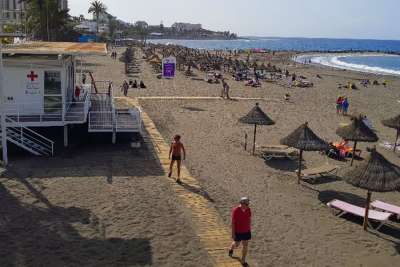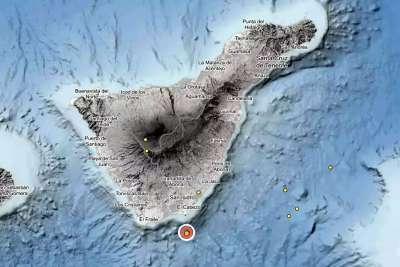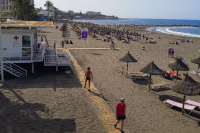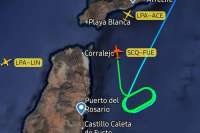Spain Digital Nomad Visa: Boost for Canary Islands Remote Work Scene
- 03-10-2025
- National
- by collaborative post
- Photo Credit: Freepik
Spain's introduction of a formal digital nomad visa program has strengthened the Canary Islands' position as one of Europe's premier remote work destinations, providing long-awaited legal clarity for the thousands of location-independent professionals who have already made the archipelago their informal base of operations.
Canary Islands: Already a Digital Nomad Hub
The Canary Islands have quietly emerged as a remote work paradise over the past five years, attracting an estimated 15,000-20,000 digital nomads annually, according to data from local coworking spaces and short-term rental platforms. The combination of year-round subtropical climate, reliable internet infrastructure, and cost advantages compared to mainland Europe created ideal conditions for remote work adoption long before formal visa programs existed.
Las Palmas de Gran Canaria leads the regional remote work scene with over 25 dedicated coworking spaces, including international brands like Selina and locally-operated facilities that cater specifically to long-term remote workers. Tenerife follows closely with growing communities in Santa Cruz and Puerto de la Cruz, while smaller islands like Fuerteventura and Lanzarote attract nomads seeking quieter environments with lower living costs.
The existing infrastructure already supports substantial remote work populations. Average internet speeds across the archipelago exceed 50 Mbps in urban areas, with fibre optic coverage reaching most population centres. Coworking memberships typically cost €80-120 monthly, significantly less than comparable facilities in Berlin, Amsterdam, or Barcelona, while providing similar amenities and community features.
Cost of living advantages remain compelling compared to traditional European tech hubs. One-bedroom apartments suitable for remote work rent for €800-1,000 monthly in central Las Palmas, while similar accommodation in Lisbon or Barcelona easily exceeds €1,200. Daily expenses, including food, transportation, and entertainment, typically run 30-40% below mainland European costs while offering superior climate and outdoor recreation opportunities.
Legal Framework Changes for Long-Term Stays
Previous visa limitations created artificial barriers for remote workers seeking extended stays in the Canaries. Tourist visas restrict non-EU citizens to 90-day periods within any 180-day timeframe, forcing many digital nomads to leave the islands periodically, regardless of their work requirements or personal preferences, disrupting productivity and community integration.
The visa renewal challenges particularly affected successful remote workers whose projects or client relationships required longer engagement periods. Software developers working on annual contracts, content creators building local partnerships, or consultants developing long-term client relationships found themselves caught between professional commitments and legal limitations that didn't recognise the nature of location-independent work.
Local business and tax implications also created complications for remote workers whose extended stays approached residence status without an appropriate legal framework. Many digital nomads found themselves in grey areas regarding tax obligations, business registration requirements, or access to local services like healthcare or banking that assume traditional employment or residence patterns.
The informal nature of the existing remote work community meant that many professionals operated without proper legal status, potentially limiting their ability to establish local business relationships, sign longer-term accommodation contracts, or access services that require formal residence documentation.
Spain's Digital Nomad Visa Program Overview
Spain's digital nomad visa program targets remote professionals earning at least €2,000 monthly from clients or employers outside Spain, a threshold that accommodates most serious remote workers while ensuring visa holders can support themselves without requiring local employment or social services.
Eligibility requirements include demonstrating remote work experience for at least one year prior to application, providing evidence of sufficient income through contracts or employment agreements, and maintaining comprehensive health insurance coverage. The program specifically targets location-independent professionals rather than traditional employees seeking temporary remote work arrangements.
Application processes can be completed through Spanish consulates worldwide or, for those already in Spain on tourist visas, through local immigration offices. Required documentation includes employment contracts, tax returns, health insurance certificates, and criminal background checks from applicants' home countries, though processing times have improved significantly compared to traditional work visa categories.
Duration and renewal options provide substantial flexibility for long-term planning. Initial visas grant one-year validity with options for renewable extensions up to five years, after which holders may be eligible for permanent residence status. The program allows visa holders to spend unlimited time in Spain while maintaining the ability to travel freely throughout the Schengen area.
For detailed guidance on Spain's digital nomad requirements and application process, specialized immigration consultants provide comprehensive support for professionals planning extended stays in the Canaries, helping navigate documentation requirements and application procedures that can vary depending on applicants' nationality and current location.
Local Economic Impact on the Islands
Increased long-term accommodation demand has already begun affecting local rental markets, particularly in areas popular with remote workers. Neighbourhoods like Vegueta in Las Palmas and La Laguna in Tenerife have seen growing demand for furnished apartments with dedicated workspace areas, leading to new rental products specifically designed for long-term remote workers.
Coworking space expansion accelerated throughout 2024 as operators anticipated the visa program's launch. New facilities in Puerto del Rosario, Arrecife, and Santa Cruz de La Palma indicate growing confidence in sustained remote work demand across all islands, not just the largest population centres.
Service industry growth extends beyond workspace provision to include specialised services for remote workers. Virtual office services, international banking assistance, tax advisory for digital nomads, and even specialised healthcare packages have emerged to serve the growing remote work community's unique needs.
Tax revenue implications remain positive for local municipalities as digital nomad visa holders contribute through income taxes, VAT on local purchases, and various fees, while typically requiring minimal public services. The program structure ensures that visa holders generate a net positive fiscal impact for local governments.
Practical Implications for Current Remote Workers
Transition from tourist to nomad visa status provides immediate benefits for remote workers already operating in the Canaries. Those currently managing 90-day visa limitations can apply for digital nomad status to eliminate artificial departure requirements that disrupt work schedules and local community integration.
Healthcare access improvements represent a significant practical advantage. Digital nomad visa holders gain access to Spain's public healthcare system after registration, eliminating dependence on travel insurance that may not cover routine medical needs or provide continuity of care for chronic conditions.
Banking and financial services become more accessible with a formal legal status. Spanish banks typically require residence documentation for account opening, and a digital nomad visa status satisfies these requirements while enabling access to local financial services, mortgage products, or business banking that supports remote work operations.
Family reunification options allow digital nomad visa holders to sponsor family members for dependent visas, addressing a major limitation of tourist visa status that prevented families from joining remote working parents or spouses for extended periods.
Future Outlook for the Canary Islands Remote Work Scene
Competition with other European nomad destinations intensifies as countries like Portugal, Estonia, and Croatia expand their own digital nomad programs. The Canaries maintain competitive advantages through climate, cost structure, and existing community development, but continued infrastructure investment and program refinement will be necessary to maintain their leadership position.
Government initiatives to attract digital professionals include ongoing improvements to internet infrastructure, streamlined business registration processes for freelancers, and promotional campaigns targeting specific remote work sectors like technology, creative industries, and online education, where the islands offer particular advantages.
Infrastructure development plans focus on expanding high-speed internet access to rural areas and smaller islands while improving transportation connections that enable remote workers to easily move between islands or travel to mainland Europe for business meetings or client visits.
Long-term sustainability requires balancing remote worker attraction with local community needs and housing availability. Regional authorities are developing policies to ensure remote work growth benefits local economies while avoiding displacement pressures that affect permanent residents or traditional tourism sectors.
Spain's digital nomad visa program validates the Canary Islands' transformation into a legitimate remote work destination while providing the legal framework necessary for long-term community development. For the thousands of location-independent professionals who have already discovered the islands' remote work advantages, the program offers security and continuity that support both professional success and genuine community integration.
The archipelago's combination of natural beauty, practical advantages, and growing remote work infrastructure positions it well for continued growth as Spain's digital nomad program attracts increasing numbers of location-independent professionals seeking European base operations with year-round outdoor opportunities and reasonable living costs.
Other articles that may interest you...
Trending
Most Read Articles
Featured Videos
A Vision of Elvis Tenerife Promo
- 10-05-2025
Tenerife Travel Guide
- 13-12-2024
Live webcam from Lanzarote airport
- 13-12-2024

























































